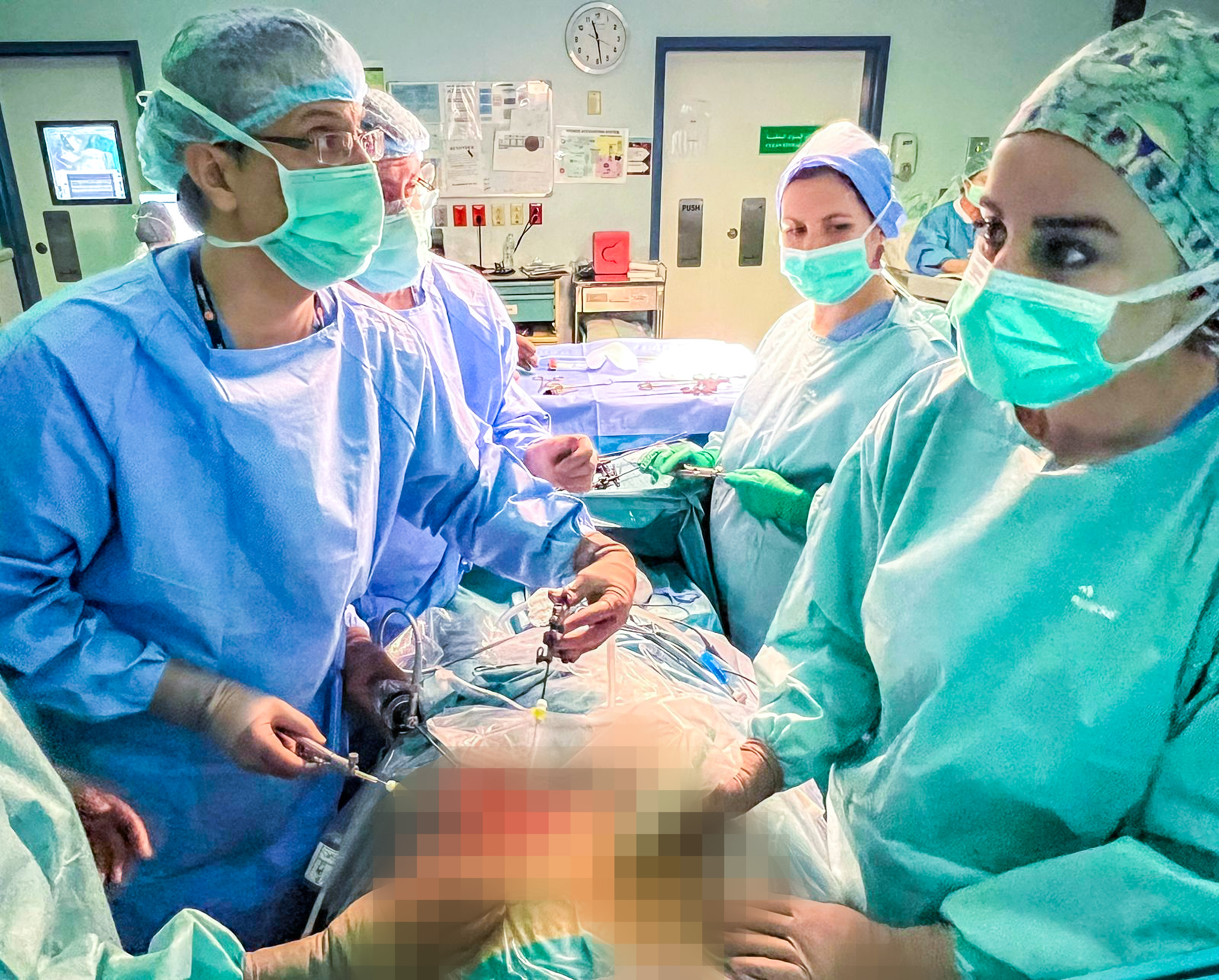
RIYADH, Saudi Arabia, July 16, 2024 (GLOBE NEWSWIRE) -- King Faisal Specialist Hospital & Research Centre (KFSHRC) in Riyadh successfully performed life-changing surgery on a 26-week-old fetus correcting a congenital spinal defect. This pioneering procedure, the first of its kind in the Middle East, was carried out using fetal endoscopic surgery, providing the family with newfound hope and relief. The early intervention not only aims to enhance the baby's future health and development but also reduces the likelihood of complex surgeries after birth. The mother, who has shown remarkable resilience and strength, has been discharged in good health and will continue her pregnancy under careful medical supervision.
The medical team performed the intrauterine procedure to keep the fetus in the womb for the remainder of the pregnancy, enhancing its chances of healthy development. The operation involved the use of a fetal endoscope, creating three small incisions in the uterus, each no more than 2 millimeters, at the site of the fetus's back. The fetus was monitored using ultrasound throughout the surgery, and the congenital defect was successfully repaired, ensuring the spinal cord is now fully protected.
Commenting on this success, Dr. Saud Alshanafey, the lead surgeon and Director of the Fetal Diagnosis and Therapy Program, stated, "This achievement reflects significant medical advancements in fetal surgery and highlights KFSHRC's commitment to providing the highest standards of healthcare to improve the quality of life for fetuses and their families in the Kingdom and beyond." He explained that the traditional approach for spina bifida involves performing surgery on the child after birth to prevent infections in the nervous system. However, this method may not completely prevent neurological complications arising from the exposure of the spinal cord during pregnancy.
Dr. Saud Alshanafey pointed out that the novelty of this procedure lies in repairing the congenital defect using a minimally invasive fetal endoscope through incisions no larger than 2 millimeters, avoiding the need to open the uterus, which positively impacts the health of the mother and the pregnancy.
Spina bifida is a common congenital defect worldwide, affecting 1 in every 1,000 to 2,000 births. It results in the exposure of the spinal cord to amniotic fluid, affecting the nerves of the lower limbs, bladder, and lower digestive system, potentially accompanied by hydrocephalus, leading to movement disorders, neurological dysfunctions, and urinary issues.
Spina bifida occurs when the spine and spinal cord do not form properly in the fetus due to the incomplete closure of the neural tube, which is responsible for developing the fetal brain, spinal cord, and associated tissues during the early weeks of pregnancy.
It is noteworthy that King Faisal Specialist Hospital & Research Centre has been ranked first in the Middle East and Africa and 20th globally, in the list of the world's top 250 Academic Medical Centres for the second consecutive year and recognized as the most valuable healthcare brand in the Kingdom and the Middle East, according to the 2024 Brand Finance rankings. Additionally, in the same year, it was ranked among the world's best 250 hospitals by Newsweek magazine.
For more information, please contact:
Mr. Essam AlZahrani, Acting Director of Media Affairs, 0555254429
Mr. Abdullah Alown, Director of Media Coordination, 0556294232
A photo accompanying this announcement is available at https://www.globenewswire.com/NewsRoom/AttachmentNg/49a37d58-c384-446d-ae21-4c97c6987144







